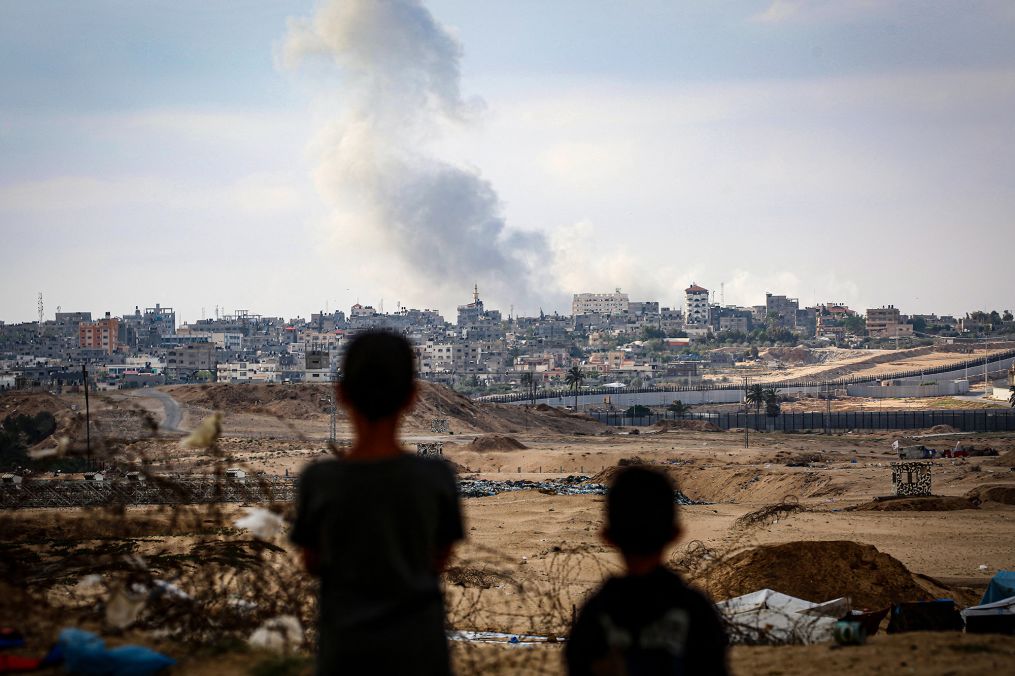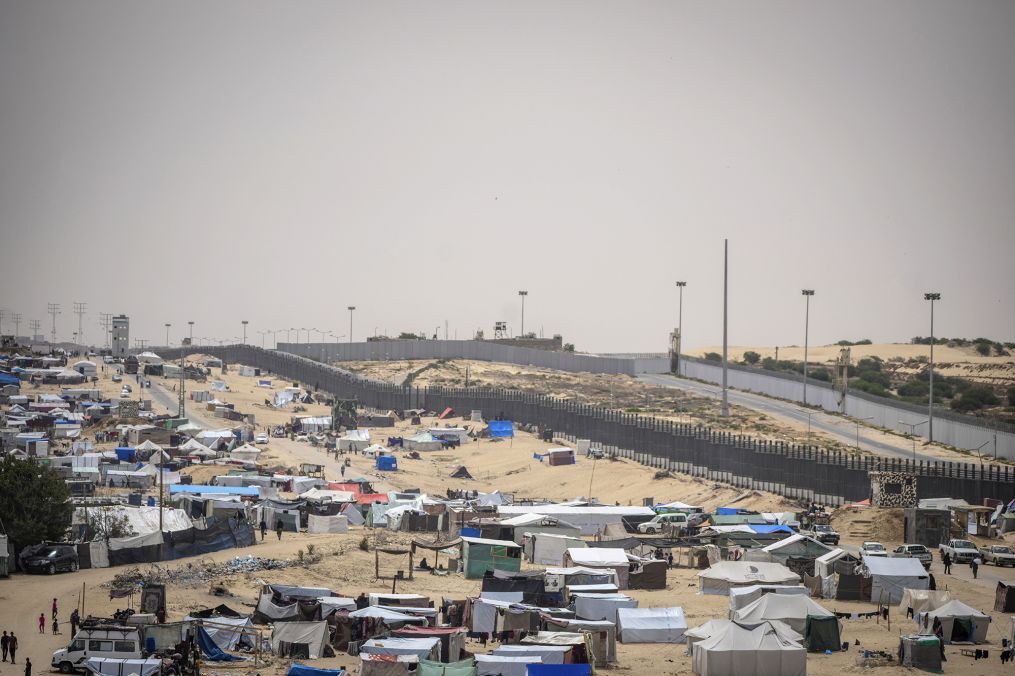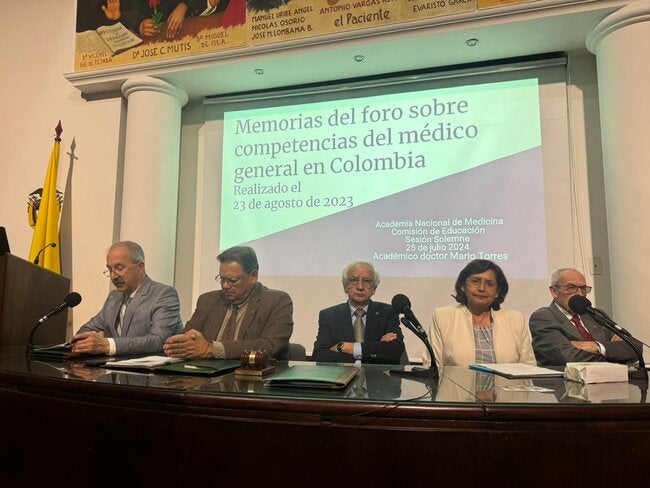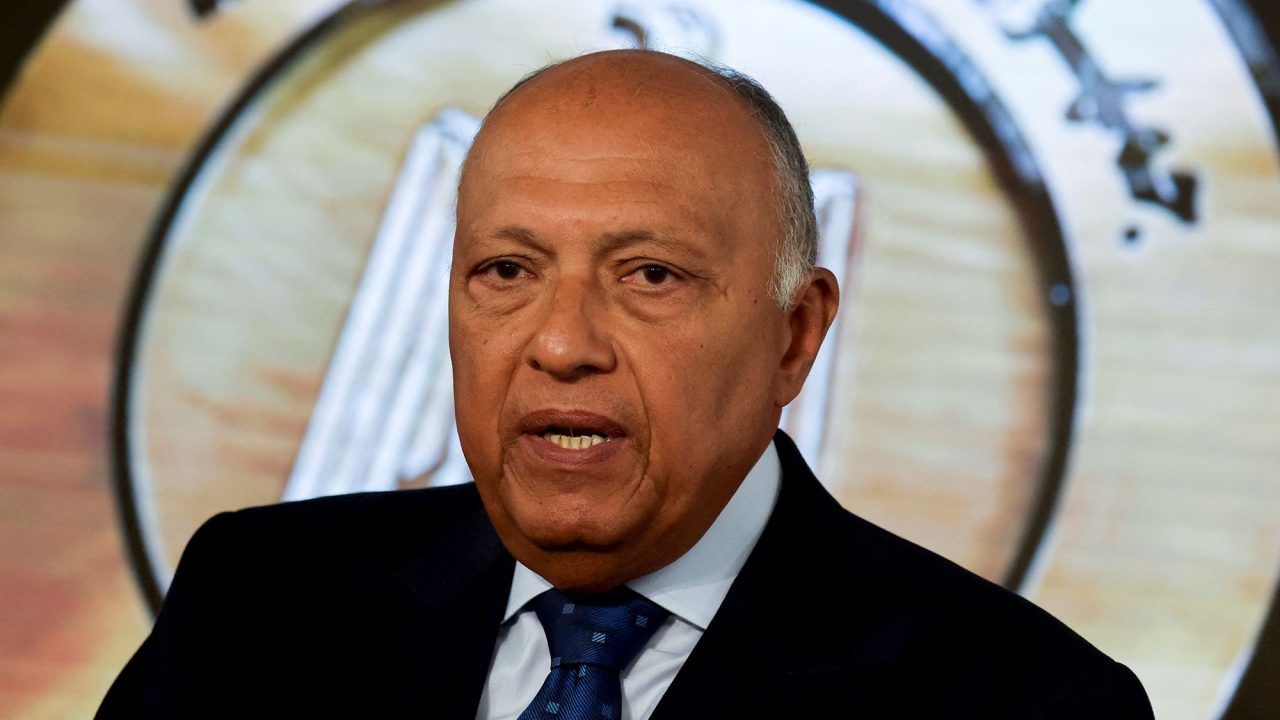(CNN) — An Egyptian official told CNN that Egypt may consider downgrading relations with Israel if it goes ahead with a military operation in Rafah, the southernmost part of the Gaza Strip, on the border with Egypt.
The official said, “Everything is possible and on the table, including the deterioration of relations. But we have not reached this point yet. We are talking with the Israelis and trying to clarify and reach a consensus.”
The official said that coordination between the two countries regarding the Rafah operation, which Egypt publicly opposed, “did not go well. That is why we warned Israel of serious repercussions.” CNN has contacted the Israeli Ministry of Foreign Affairs for comment.
The Wall Street Journal reported earlier that Egypt was considering reducing its relations with Israel.
Clashes occurred between the two countries this week after Israel launched a limited military operation in Rafah last week and took control of the Palestinian side of the border with Egypt. Egypt then refused to coordinate with Israel regarding the delivery of aid to Gaza. The official told CNN earlier that aid shipments to the Palestinians may stop because Egypt cannot guarantee the safety of its trucks, as they may be attacked by Palestinian fighters targeting Israeli soldiers.
Senior diplomatic officials in the two countries exchanged blame for the closure of the Rafah border crossing Stop Delivering aid through this main land crossing.
The Rafah crossing was the entry point for about a quarter of the aid directed to Gaza before the Israeli operation. The US State Department warned on Tuesday that only 50 trucks of humanitarian aid arrived in Gaza on Sunday, down from hundreds per day in previous weeks, adding that this number was “woefully insufficient.”
Israel accused Egypt of closing the border crossing. in Declaration in XIsraeli Foreign Minister Israel Katz said on Tuesday that he spoke with British Foreign Secretary David Cameron and German Foreign Minister Annalena Baerbock “about the need to persuade” Egypt to reopen the Rafah crossing to allow the continued delivery of international humanitarian aid to Gaza. “

Children watch smoke rising during Israeli attacks east of Rafah in the southern Gaza Strip on Monday. Image source: AFP/Getty Images
The Israeli minister’s statements sparked controversy The reaction of the Egyptian Foreign Minister Sameh Shukri rejected Katz’s statements, describing them as “a policy of distortion of facts.”
Shukry announced, “Egypt’s categorical rejection of the policy of distorting facts and denying responsibility pursued by the Israeli side,” adding that Katz’s statements are “desperate attempts by Israel to hold Egypt responsible for the unprecedented humanitarian crisis taking place in Gaza.”
Shukri said that the crisis “is a direct result of indiscriminate Israeli attacks on Palestinians for more than seven months.”
Israel said it would never allow Hamas to control the border crossing. The Egyptian official told CNN that Egypt also does not want Hamas to be in control, but Israeli control is also unacceptable.
“The crossing must be in Palestinian hands,” the official said, adding that the crossing could be placed under the control of Palestinian Civil Defense. “These are neither Hamas nor Fatah (Hamas’ rival party).”
Israeli forces on the Egyptian border
Adding to the tensions are Israeli military movements that prompted tanks and soldiers from the Jewish state to operate at the gates of Egypt, sparking anger in the Egyptian media over alleged violations of the peace treaty signed between the two countries in 1979.
Israeli forces entered a demilitarized zone under that treaty four decades ago, including parts of the border area known as the Philadelphia Corridor, where the Rafah border crossing is located. Videos published by the Israeli army last week showed Israeli flags raised on the Palestinian side of the border.
The Philadelphia Corridor is a strip 14 kilometers long and 100 meters wide that extends along the border between Gaza and Egypt. The corridor is essential to the 1979 Treaty, the agreement under which Egypt and Israel ended their dispute and restricted the number of forces that each side could station near the other party’s territory.
Changes in the security presence in the region must be made by mutual agreement. over the years, Amendments to the agreements Security agreements between Egypt and Israel have allowed Cairo to increase its security presence in the Sinai Peninsula bordering Israel.

Palestinians displaced by Israel’s air and ground attack on Gaza walk through a makeshift camp in Rafah, on the border with Egypt, in Gaza, on May 10. Photography: Abdel Karim Hanna/AP
Israel did not reveal the size of its military presence in Rafah. But under a 1979 peace treaty, drawn up before Israel unilaterally withdrew its forces from Gaza in 2005, Israel can have a limited force of four infantry battalions in Area D, where the Philadelphia Corridor is located.
These battalions can consist of up to 180 armored personnel vehicles and a total of four thousand soldiers. The treaty says that the presence of tanks, artillery and anti-aircraft missiles, with the exception of individual surface-to-air missiles, is not permitted.
It is unclear how many Israeli forces are now stationed across the border in Rafah. In response to a question by CNN about the size of its military operation in the city, and whether it was coordinated with the Egyptians, the Israeli army refused to comment.
CNN’s Eugenia Youssef, Hamdi Al-Khashali, Michael Conti, Michael Schwartz, Mustafa Salem, Mohamed Tawfiq, Tim Lister, Abeer Salman and Richard Roth contributed reporting.

“Music buff. Social media lover. Web specialist. Analyst. Organizer. Travel trailblazer.”




:quality(85)/cloudfront-us-east-1.images.arcpublishing.com/infobae/SXDWOIO7O5FMZOWUATFEXQYWTY.jpg)


More Stories
They condemn the irregularities that occurred in the installation of voting tables in the presidential elections in Venezuela.
At least 50 Cubans stranded in Peru after flight to Nicaragua canceled
Censorship in Venezuela: Condemn Chavism’s Blockade of Three Media Days Ahead of Elections